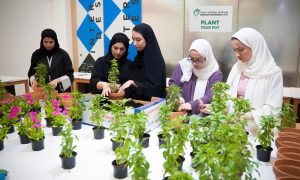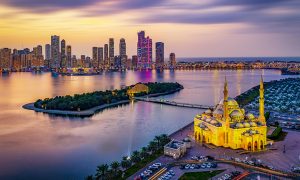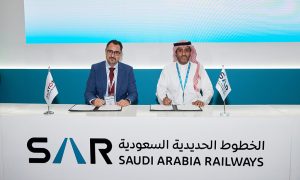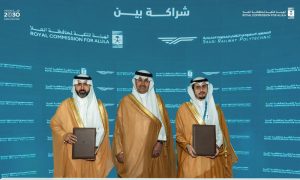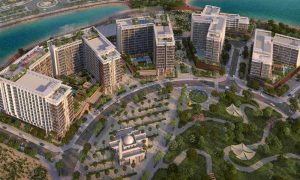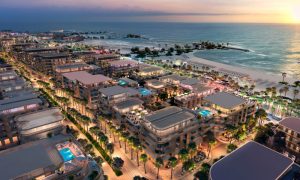Amazon launches several sustainability projects in MENA region
Company says that projects in KSA, UAE and Egypt are part of its commitment to supporting The Climate Pledge

Amazon has announced that it is launching a number of sustainable projects in the MENA region, including in Saudi Arabia, UAE and Egypt, as part of its commitment to its sustainability roadmap in the region.
In a statement, Amazon said that its MENA operations are working to support The Climate Pledge, a global drive to achieve net-zero carbon across its businesses by 2040. This target is fully aligned with the Saudi and Middle East Green Initiatives, which aim to unify sustainability efforts in Saudi Arabia and the region to increase reliance on clean energy, offset the impact of fossil fuels and combat climate change.
Furthermore, the company said that it aims to have all its Fulfilment Centres in the MENA region powered by renewable energy, an ambition that supports the Saudi and Middle East Green Initiatives’ drive to develop the local and regional clean energy sector. Two facilities in Saudi Arabia and Egypt are scheduled to adopt this technology by 2022.
In addition, the company is working to strengthen its control systems, data, and analytics to improve energy efficiency across all facilities with the implementation of state-of-the-art Building Management Systems (BMS).
Ronaldo Mouchawar, Vice President of Amazon MENA said: “We are proud to be operating in countries that have a heightened consciousness of the impact of climate change on future generations. As we embark on our path to a low carbon economy a decade ahead of the Paris Agreement, I call on businesses in MENA to join us as signatories to The Climate Pledge.
“By agreeing to decarbonise on a faster time horizon, we will play a critical role in stimulating innovation, policies and investment that will help to tackle the climate crisis in our communities, our countries and our region.”
The statement highlighted that solving the climate crisis is a shared responsibility with shared dividends, requiring collective action between businesses, organisations and governments. It pointed out that the company has made ambitious commitments towards reaching its goal, including the deployment of carbon reduction strategies at every stage of the operations process – from the time an item is picked off the shelf in a Fulfilment Centre, to the materials used to pack the item, and the transport that gets the package to the customer’s door.
Prashant Saran, Director of Operations for Amazon MENA added: “We understand that human-induced climate change is real, serious, and requires immediate action. As we continue to grow in the region, our MENA sustainability roadmap embodies Amazon’s commitment towards building an environmentally sustainable business and supporting the communities where we live and work.”
Co-founded by Amazon in 2019, The Climate Pledge calls on signatories to meet the goals of the Paris Agreement 10 years early through regular reporting, carbon elimination and credible offsets. More than 100 organisations have signed the Pledge to date.
The company added that it is also transforming its delivery methods through the adoption of new technology, electric vehicles and alternative fuel to get packages to customers more sustainably. It said that it is continuing to work with mobility innovators and supply chain partners to explore vehicles using electrification and low carbon alternative fuels, while leveraging global technology in route planning to maximise efficiencies, with the goal of putting fewer vehicles on the road.
Reducing the carbon footprint of each Amazon parcel also requires collaboration with partners to decrease packaging waste, it said. Therefore, Amazon said that it plans to expand its Ship In Own Container programme to more sellers across the region, eliminating the need for additional Amazon packaging across 10% of deliveries in Saudi Arabia in 2021.
In addition, it aims to leverage advanced Machine Learning models to continue to optimise its packaging suite to reduce the size and weight of boxes resulting in fewer delivery trips.
The company recently launched a solar rooftop in the UAE, which is expected to reduce CO2 emissions by 2,500 tonnes each year.



